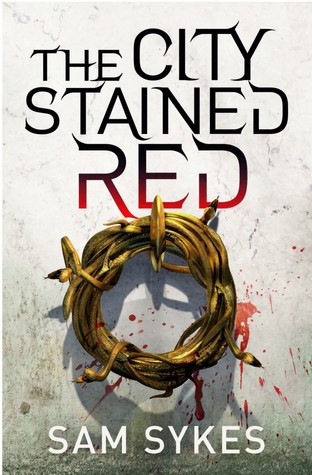HAMMERS ON BONE by Cassandra Khaw

John Persons is a private investigator hired by a ten-year-old to kill the kid's stepdad. But he finds that something much worse is wrong with the stepdad . . . and the town. Fortunately, John Persons is a bit more than a, uh, person, and therefore qualified to handle creepy night horrors.
I am so glad to have learned of this author this year. She twirls words around her like a gymnast's ribbon. Hammers on Bone is a delicious combination of noir, cthulhu-style horror, and beautiful prose, and I can't wait to read more of Khaw's work.
BACK OFF, I'M A NINJA by Natalie Whipple

This is the final book in Natalie's Relax, I'm a Ninja trilogy about a Japanese-American teen ninja named Tosh, who discovers he's one half of an awesome, demon-hunting duo. I won't spoil the third one if you haven't read any yet, because you should really read all of them.
Tosh manages to be cool and geeky at the same time, and in the last two books in particular, I loved his relationship with Amy. Honestly, Tosh and Amy make me want to be a better husband, which is a weird thing to say about a young adult book about ninjas and demons. I love the Japanese mythology used throughout the trilogy, too. These books are just tons of fun.
THE NIGHT CLAVE by Monte Cook and Shanna Germain

Set in the world of Numenera, a group of friends make a desperate attempt to rescue their people from a mind-controlling tyrant. (Full disclosure: I proofread this book.)
Aside from the Numenera world (which is so much weird and fun), I really enjoyed the relationships between the characters. The heist aspect was great, but the relationship and banter between the two main characters just made me so happy.
ON THE EDGE OF GONE by Corinne Duyvis

A comet is scheduled to hit the Earth. This is the story of a young girl named Denise and her struggle to survive—and find her sister—both during and after impact.
What I love most about this book is how Corinne makes an impact apocalypse in Amsterdam feel just as real as Denise's autism. I really enjoyed experiencing both.
THE CITY STAINED RED by Sam Sykes

An awesome, classic, fantasy adventure starring an unlikely group of adventurers trapped in a city about to be wiped out by feuding gangs and ancient demons. This is such a fun world, and the story feels like a D&D campaign gone very, very wrong in all the best ways.
Even though the novel screams D&D, the story rests heavily on the characters and their personal struggles, and so it doesn't fall into any of the classic RPG traps. So it's a novel screaming D&D (which I love) while telling an awesome story about conflicted characters (which I love). So yeah, awesome.
Next up, I hope to finish Garth Nix's Abhorsen trilogy. What are you reading these days?


























